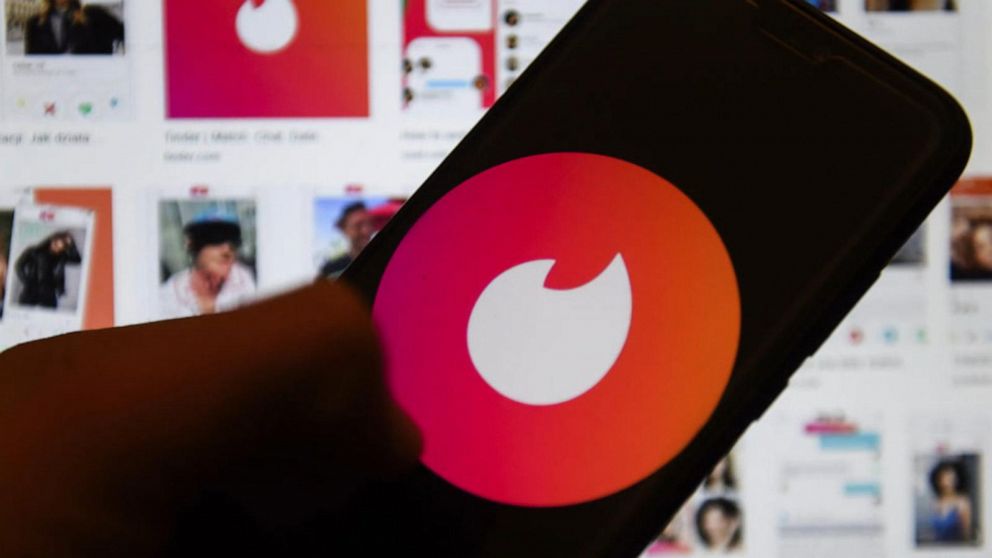Privacy Concerns with Dating Apps in the Gulf


Introduction
Overview of Privacy Concerns with Dating Apps in the Gulf
Dating apps have become increasingly popular in the Gulf region in recent years. However, this rise in popularity has raised privacy concerns among users. Data security and privacy breaches are top concerns for individuals using these apps in the Gulf. Users worry about their personal information being misused or shared without consent.
Table: Privacy Concerns with Dating Apps
| Privacy Concerns | Description |
|---|---|
| Data Security | Users are worried about their personal data being vulnerable to hackers. |
| Privacy Breaches | Concerns about unauthorized access to personal information by third parties. |
| Misuse of Personal Information | Fear that dating apps may use or sell personal data for purposes unknown to users. |
| Lack of Transparency | Users are uncertain about how their data is being collected, stored, and used. |
Users in the Gulf are calling for stricter regulations to ensure that their data is protected while using dating apps. Transparency from app developers regarding data collection practices is crucial to building trust among users. Companies must prioritize privacy measures to safeguard user information and prevent breaches.

Data Collection
Types of data collected by dating apps in the Gulf
Dating apps in the Gulf region collect a wide range of data from users. This includes personal information such as names, ages, locations, photos, and contact details. Additionally, these apps may gather more sensitive data like relationship preferences, interests, and even biometric information for features like facial recognition. User activities within the app, such as messages exchanged, profiles viewed, and in-app purchases, are also tracked and stored. The extensive data collection practices of dating apps aim to personalize user experiences and improve matches but raise concerns about the security and confidentiality of this information.
Potential risks of data collection through dating apps
The collection of such diverse data by dating apps poses several risks to user privacy and security. First and foremost, there is the risk of data breaches, where hackers may exploit vulnerabilities in the app's systems to access user information. Moreover, the misuse of collected data for targeted advertising or selling to third parties without user consent is a prevalent concern. Users also face the risk of identity theft, stalking, and discrimination based on the information gathered by dating apps. The lack of clear guidelines on how long data is retained and who has access to it further compounds these risks, leaving users vulnerable to potential exploitation.

Privacy Policies
Analysis of privacy policies of popular dating apps in the Gulf
Popular dating apps in the Gulf region have privacy policies that outline how they collect, use, and protect user data. These policies often detail the types of information collected, the purposes for which it is used, and the security measures in place to safeguard it. However, the language used in these policies can be complex and dense, making it challenging for users to fully understand the implications of sharing their data.
How privacy policies impact user data protection
Privacy policies play a significant role in shaping how user data is protected within dating apps. Clear and transparent policies can build trust with users, assuring them that their information will be handled responsibly. On the other hand, vague or misleading policies can leave users unaware of how their data is being used, increasing the risk of exploitation and privacy violations. It is essential for dating apps to regularly review and update their privacy policies to align with best practices and regulatory requirements, enhancing user confidence in the protection of their personal information.

Geolocation Tracking
Concerns related to geolocation tracking on dating apps in the Gulf
When it comes to popular dating apps in the Gulf region, geolocation tracking raises concerns regarding user privacy and security. Users may feel apprehensive about sharing their real-time location data, as this information can potentially be misused or compromised. The feature, while intended to enhance user experience by connecting individuals based on proximity, also leaves room for potential risks such as stalking or unauthorized access to personal information.
Implications of sharing location data on dating apps
The act of sharing location data on dating apps can have significant implications for user safety and privacy. While it can facilitate meeting like-minded individuals nearby, it also exposes users to possible threats if this information falls into the wrong hands. Understanding how dating apps handle and secure geolocation data is crucial for users to make informed decisions about the level of access they grant. It is imperative for dating apps to be transparent about their geolocation tracking practices and ensure robust security measures are in place to safeguard this sensitive information.

Third-Party Access
Risk of third-party access to user data on dating apps
When considering the use of geolocation tracking on dating apps in the Gulf region, the risk of third-party access to user data emerges as a significant concern. The sharing of real-time location data can make individuals vulnerable to potential exploitation by unauthorized parties. This exposure may lead to unwanted solicitation, stalking, or even data breaches if not properly managed. Users must be cautious about the level of access they grant and be aware of the potential consequences of sharing such sensitive information.
Measures to prevent or limit third-party access
To mitigate the risk of third-party access to user data on dating apps, it is essential for both users and app developers to take proactive measures. Users should review and adjust their privacy settings to restrict access to their geolocation data only to trusted sources. Additionally, app developers must prioritize data encryption, secure server storage, and regular security audits to prevent unauthorized access to user information. By implementing these measures, both parties can work together to enhance user privacy and security while using dating apps in the Gulf region.

Data Security
Importance of data security on dating apps in the Gulf
When considering the use of geolocation tracking on dating apps in the Gulf region, one must emphasize the importance of data security to safeguard user information. The risk of third-party access highlights the need for robust measures to protect sensitive data from potential exploitation or breaches.
Security measures implemented by dating apps to protect user data
To mitigate the risk of third-party access to user data on dating apps in the Gulf region, strict security measures are essential. Users are advised to adjust their privacy settings carefully, limiting access to geolocation data to trusted sources. App developers play a crucial role in ensuring data security by implementing encryption protocols, securing server storage, and conducting regular security audits. These proactive measures work towards enhancing user privacy and minimizing the vulnerabilities associated with sharing sensitive information on dating apps in the Gulf region.

User Consent
Issues surrounding user consent for data collection and sharing
When examining the use of geolocation tracking on dating apps in the Gulf region, the focus shifts to the critical aspect of user consent in data collection and sharing. Users face the challenge of navigating through complex privacy policies and terms of service agreements that dictate how their data is used and shared by the app providers. Ensuring transparent communication and clear consent processes is essential to address concerns relating to unauthorized data access and utilization.
Importance of informed consent in maintaining user privacy
In the realm of dating apps operating in the Gulf region, the emphasis is on securing informed consent from users to uphold data privacy standards. By obtaining explicit permission before accessing sensitive information like geolocation data, app developers demonstrate a commitment to respecting user autonomy and confidentiality. Upholding the principle of informed consent builds trust between users and app providers, fostering a safer and more transparent digital environment for interactions and connections.

Government Regulations
Overview of government regulations regarding data privacy on dating apps in the Gulf
When considering the landscape of dating apps in the Gulf region, government regulations play a crucial role in safeguarding user data privacy. Authorities often enforce guidelines that mandate app developers to adhere to specific standards when collecting and processing user information. These regulations aim to protect individuals from potential data breaches and misuse by ensuring that dating apps handle personal data responsibly and ethically.
Compliance requirements for dating app companies
Dating app companies operating in the Gulf region must comply with a set of stringent requirements outlined by regulatory bodies. These requirements may include obtaining explicit consent from users before gathering data, implementing robust security measures to safeguard information, and providing users with transparent control over their privacy settings. By meeting these compliance standards, dating app companies can demonstrate their commitment to data protection and build trust with their user base.

Conclusion
Summary of key privacy concerns with dating apps in the Gulf
When considering the landscape of dating apps in the Gulf region, government regulations play a crucial role in safeguarding user data privacy. Authorities often enforce guidelines that mandate app developers to adhere to specific standards when collecting and processing user information. These regulations aim to protect individuals from potential data breaches and misuse by ensuring that dating apps handle personal data responsibly and ethically.
Recommendations for users to protect their privacy online
Dating app companies operating in the Gulf region must comply with a set of stringent requirements outlined by regulatory bodies. These requirements may include obtaining explicit consent from users before gathering data, implementing robust security measures to safeguard information, and providing users with transparent control over their privacy settings. By meeting these compliance standards, dating app companies can demonstrate their commitment to data protection and build trust with their user base.




